Clearing 2025
Clearing places have been filled on this course for 2025 entry.
Classics
UCAS code Q800
- Study mode
- Full-time
- Duration
- 3 years
- Start date and application deadlines
-
- Start date
Clearing places have been filled on this course for 2025 entry.
UCAS code Q800
Study the Greeks and Romans and the languages in which they thought and wrote, whether you are a beginner or already studying Greek or Latin. In the language modules, your language skills and literary awareness will be developed through a wide range of texts (in poetry and prose) from the Graeco-Roman world.
The degree allows you to study the society and culture of antiquity, including its literature, art, history and archaeology. If you have no previous experience of either Greek or Latin, the introductory level modules are designed to move you towards reading texts in their original languages as swiftly as possible. The more advanced modules allow for in-depth study of a wide variety of authors. You will have the advantage of expert tuition, often in very small groups, and the opportunity to develop specialist interests. Classics students also acquire the critical skills necessary for the interpretation of written evidence, to understand methodological issues and contemporary theories relevant to the study of ancient languages and societies.

We’re proud to announce we’ve been awarded a Gold rating for educational excellence.
Discover what you'll learn, what you'll study, and how you'll be taught and assessed.
In year one you will study Greek and Latin language at levels depending on your previous experience. Other modules are on Greek and Roman literature in translation (the cultural cornerstones of the Odyssey and the Aeneid), ancient history, and visual culture.
Students are required to take both Latin and Ancient Greek language modules. The choice of Latin or Ancient Greek language modules is dependent on level of ability. As a general rule: beginners join CLAH401/2 and CLAH501/2; students with an AS join CLAH403/4 and CLAH503/4; and those with an A level join CLAH405/6 and CLAH505/6. Students with other qualifications must seek guidance from the subject lead on the appropriate entry point for their studies. Language modules must be taken in pairs across the session.
Students also take 30 credits of optional modules in each semester.
ALGY109 and ALGY116 are pre-requisite modules for Egyptology modules in years two and three.
Programme details and modules listed are illustrative only and subject to change.
In year two, you will continue to develop both your skills in Latin and Greek, and your awareness of how Greek and Roman authors were using their languages. Your optional modules can be in Greek and Roman culture, classical literature in translation and ancient history.
Students take 15 credits of Latin modules and 15 credits of Ancient Greek modules in each semester. Language modules must be taken in pairs across the session and will normally continue from those taken in year one.
Students also take 30 credits of optional modules in each semester. Students must ensure they meet any pre-requisites.
CLAH222 requires prior approval and is subject to a suitable placement being sourced. Students will not be able to register directly for this module.
Students may take 15 credits of optional cognate modules outside of their degree programme with permission from the subject lead.
Registration onto HLAC220 is only for students planning to undertake a Work Placement Year.
Programme details and modules listed are illustrative only and subject to change.
In year three, your dissertation will give you the opportunity to undertake detailed and independent research under the guidance of an expert adviser. The subject matter itself will be your own choice. You will also continue with Greek and Latin and will read key authors in the original language. The optional modules on offer draw directly on the areas of particular expertise of the Liverpool teaching staff.
Students take 15 credits of Latin modules and 15 credits of Ancient Greek modules in each semester. Language modules must be taken in pairs across the session and will normally continue from those taken in year two.
Students also take 15 credits of optional modules in each semester and a required dissertation (CLAH450). Students must ensure they meet any pre-requisites.
Students wishing to take CLAH310 must have taken either CLAH105, ALGY109 or ALGY131 in year three. Students cannot register directly for this module.
Students wishing to take ALGY342 must have taken ALGY106 in year three.
CLAH450 is a ‘year-long’ module and which represents 15 credits in each semester.
Students may take 15 credits of optional cognate modules outside of their degree programme with permission from the subject lead.
| Compulsory modules | Credits |
|---|---|
| DISSERTATION (CLAH450) | 30 |
Programme details and modules listed are illustrative only and subject to change.
There are five levels for each language in this programme, and you are slotted in at the appropriate level for your language experience. It may be that you will do Greek I at the same time as Latin III if you have an A level in Latin and not in Greek.
Modules are delivered by a mixture of lectures and seminars in year one, in year two the lecture element within modules is complemented by student led seminars. Finally, in year three, most modules are delivered by a short series of lectures with a focus on student-led seminars thereafter.
Self-directed study is also expected through the course reading list and conducting research for your essays and projects. Academic staff are regularly available via their office hours for one-to-one feedback and support. Course material is available 24-hours a day on Canvas, our online learning platform, and study support is available from our dedicated student services team.
Lectures combine the delivery of information and themes with discussion and demonstration of method and analysis, to address core topics and questions. These are lecturer-led, and may involve class discussion and group work.
Seminars are small class discussion groups at which students have an opportunity to explore evidence and scholarship to answer questions, building on independent research or other relevant preparation. In seminars, the teachers act as a facilitator and guide, co-ordinating, guiding, and reacting to student contributions.
Language classes follow a seminar format. Seminars may include oral presentations by individuals or groups of students.
Independent study: students support and prepare for their in-class learning by undertaking independent study. This normally involves reviewing lecture content, follow-up reading of sources and scholarship relating to lecture topics, preparing answers to questions set for seminar discussion through prior reading of sources and scholarship.
Classics is assessed in a variety of ways.
Examination: learning outcomes are demonstrated in student performance through preparation for and the sitting of an examination. Such examinations may cover essay-based work (usually by selection of a set number of questions), source analysis (usually by selection of questions or a commentary on an ancient source) or language work (mostly translation and commentary of set passages).
Assessed coursework, including essays, commentaries, posters, and projects: learning outcomes are demonstrated in student performance through the preparation and delivery of a piece of work as an act of self-directed learning with full access to all the relevant learning and research tools and supports.
Seminar portfolio: a critical summary of seminars presented by students reflecting on the material discussed in seminars and subsequently researched and presented as a discussion of the topic or theme.
Class tests, primarily in language modules: learning outcomes are demonstrated with regards to understanding, analysing and applying structures and concepts of grammar and syntax.
Oral presentations: modules summatively (and formatively) assess presentation skills and in several modules require the use of Microsoft PowerPoint.
We have a distinctive approach to education, the Liverpool Curriculum Framework, which focuses on research-connected teaching, active learning, and authentic assessment to ensure our students graduate as digitally fluent and confident global citizens.
The Liverpool Curriculum framework sets out our distinctive approach to education. Our teaching staff support our students to develop academic knowledge, skills, and understanding alongside our graduate attributes:
Our curriculum is characterised by the three Liverpool Hallmarks:
All this is underpinned by our core value of inclusivity and commitment to providing a curriculum that is accessible to all students.
The qualifications and exam results you'll need to apply for this course.
| Qualification | Details |
|---|---|
| A levels |
BCC |
| BTEC Level 3 national extended diploma |
DMM. |
| BTEC combinations |
BTEC National Diploma MM plus B at A level; BTEC National Extended Certificate M plus BC at A level |
| Welsh Baccalaureate Advanced |
C in the Welsh Baccalaureate, plus BC at A level |
| Access |
Pass relevant Access to HE Diploma with 45 Level 3 credits with 27 at Distinction and 18 at Merit |
Studying with us means you can tailor your degree to suit you. Here's what is available on this course.
University of Liverpool students can choose from an exciting range of study placements at partner universities worldwide. Choose to spend a year at XJTLU in China or a year or semester at an institution of your choice.
Immerse yourself in Chinese culture on an optional additional year at Xi'an Jiaotong Liverpool University in stunning Suzhou.
Broaden your world by spending an additional year of study at a partner university abroad following your second year of study.
Take a semester of your second year of study at one of our worldwide partner institutions.
Spend a summer abroad on a study placement or research project at one of our worldwide partner institutions.
Every student at The University of Liverpool can study a language as part of, or alongside their degree. You can choose:
With a combined degree, you can study two subjects as part of the same degree programme.
Explore combined degrees for Archaeology, Classics and Egyptology courses
The Department of Archaeology, Classics and Egyptology is part of the School of Histories, Languages and Cultures. Teaching takes place across campus, including in specialist facilities in the Central Teaching Hub.
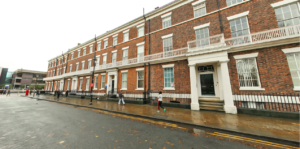

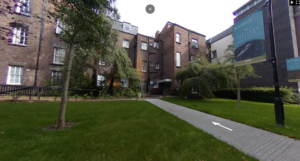
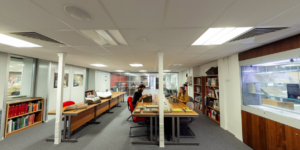
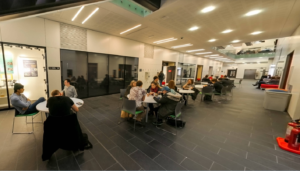
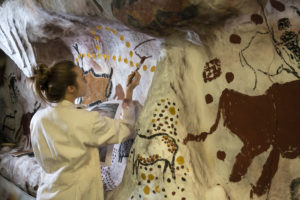
From arrival to alumni, we’re with you all the way:

Want to find out more about student life?
Chat with our student ambassadors and ask any questions you have.
The skills learnt on a Classics degree offer a wide range of possibilities. Graduates of this programme which combines a range of analytical skills can expect to have good access to careers in industry, commerce, finance, education and public service. The programme will also prepare students for postgraduate study or further training.
Graduates of this programme have good access to careers in the following industries:
Recent employers include:
88% of Archaeology, Classics and Egyptology students go on to work or further study within 15 months of graduation.
(Graduate Outcomes, 2018-19.)
Your tuition fees, funding your studies, and other costs to consider.
Full-time place, per year - £9,535
Year abroad fee - £1,430 (applies to year in China)
Full-time place, per year - £24,100
Year abroad fee - £12,050 (applies to year in China)
The tuition fees shown are correct for 2025/26 entry. Please note that the year abroad fee also applies to the year in China.
Tuition fees cover the cost of your teaching and assessment, operating facilities such as libraries, IT equipment, and access to academic and personal support. Learn more about paying for your studies.
We understand that budgeting for your time at university is important, and we want to make sure you understand any course-related costs that are not covered by your tuition fee. This could include buying a laptop, books, or stationery.
Find out more about the additional study costs that may apply to this course.
We offer a range of scholarships and bursaries that could help pay your tuition and living expenses.
If you’re a UK student joining an undergraduate degree and have a household income below £35,000, you could be eligible for a Liverpool Bursary worth up to £2,000 for each year of undergraduate study.
Apply for an Asylum Seekers Scholarship and you could have your tuition fees paid in full and receive help with study costs. You’ll need to have applied for asylum in the UK, or be the dependant of an asylum seeker, and be joining an eligible undergraduate degree.
If you’ve spent 13 or more weeks in Local Authority care since age 14, you could be eligible for a bursary of £3,000 per year of study. You’ll need to be a UK student joining an eligible undergraduate degree and be aged 28 or above on 1 September in the year you start.
Are you a UK student with a Black African or Caribbean heritage and a household income of £25,000 or less? You could be eligible to apply for a Cowrie Foundation Scholarship worth up to £8,000 for each year of undergraduate study.
If you’re a UK student identified as estranged by Student Finance England (or the equivalent UK funding body), you could be eligible for a bursary of £1,000 for each year of undergraduate study.
Joining a School of Biosciences degree and have a household income of less than £25,000? If you’re a UK student, you could apply to receive £4,500 per year for three years of your undergraduate course.
Do you live in the Liverpool City Region with a household income of £25,000 or less? Did neither of your parents attend University? You could be eligible to apply for a Nolan Scholarship worth £5,000 per year for three years of undergraduate study.
Are you a UK student with a household income of £25,000 or less? If you’ve participated in an eligible outreach programme, you could be eligible to apply for a Rigby Enterprise Award worth £5,000 per year for three years of your undergraduate degree.
Are you a UK student with a household income of £25,000 or less? Did neither of your parents attend University? You could be eligible to apply for a ROLABOTIC Scholarship worth £4,500 for each year of your undergraduate degree.
Apply to receive tailored training support to enhance your sporting performance. Our athlete support package includes a range of benefits, from bespoke strength and conditioning training to physiotherapy sessions and one-to-one nutritional advice.
Joining a degree in the School of Electrical Engineering, Electronics and Computer Science? If you’re a UK student with household income below £25,000, you could be eligible to apply for £5,000 a year for three years of study. Two awards will be available per academic year.
If you’re a young adult and a registered carer in the UK, you might be eligible for a £1,000 bursary for each year of study. You’ll need to be aged 18-25 on 1 September in the year you start your undergraduate degree.
Have a question about this course or studying with us? Our dedicated enquiries team can help.
Last updated 15 August 2025 / / Programme terms and conditions